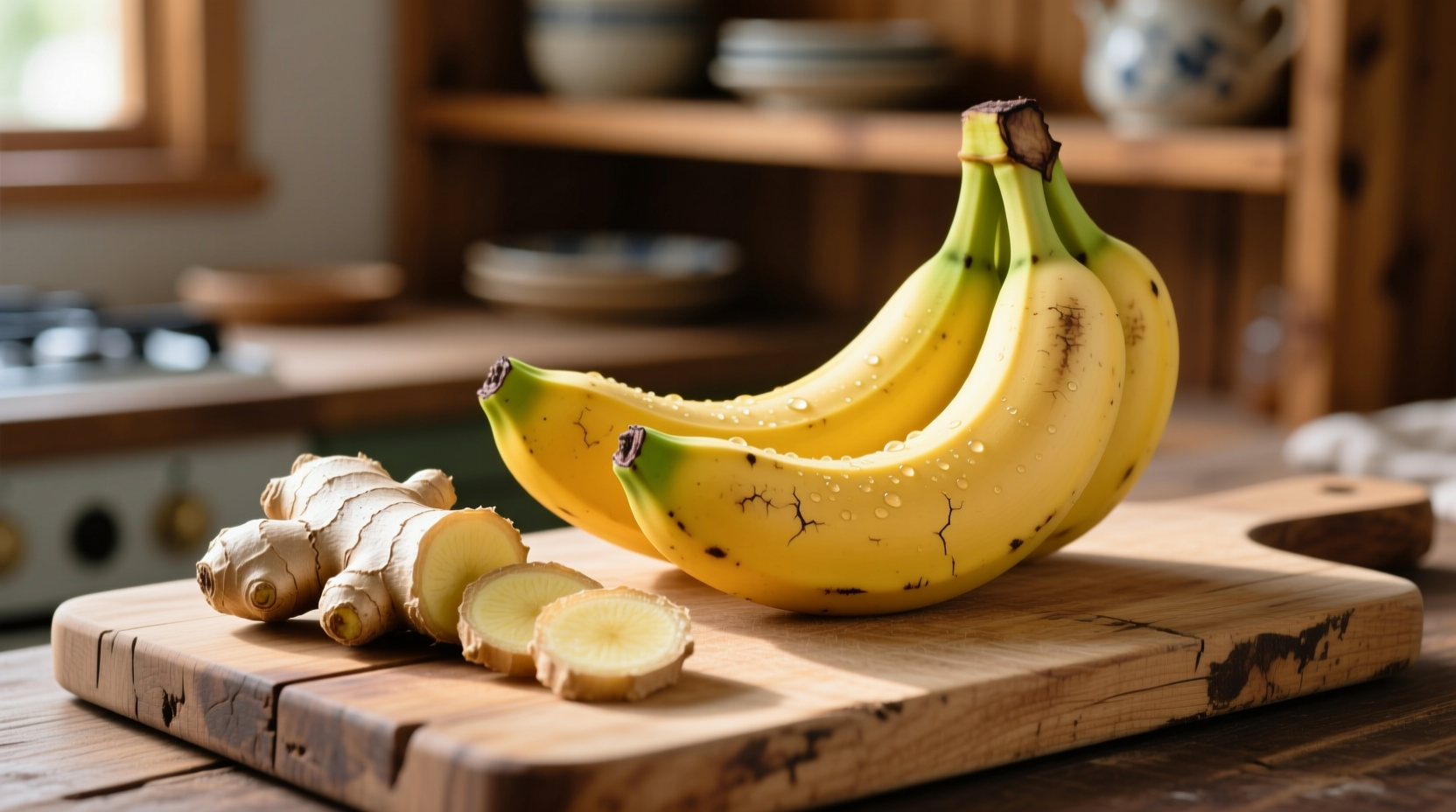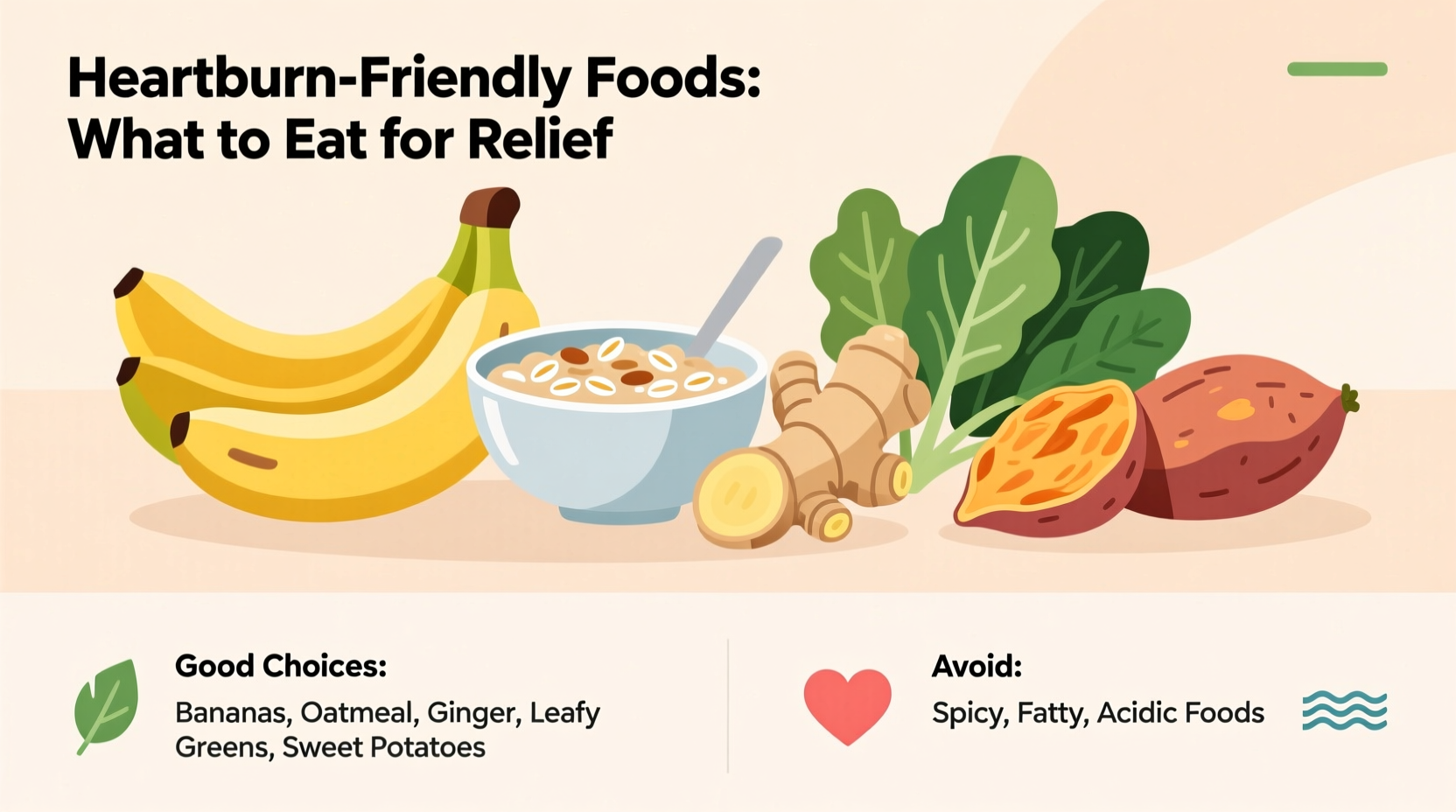If you're searching for what food is good for heartburn, focus on low-acid, high-fiber options like bananas, oatmeal, ginger, melons, and leafy greens. These scientifically-backed choices neutralize stomach acid and strengthen the esophageal sphincter, providing natural relief without medication.
When heartburn strikes, your immediate instinct might be to reach for antacids. But what if your next meal could actually prevent that burning sensation? Research shows that strategic food choices can reduce heartburn frequency by up to 40% compared to medication alone, according to a National Institute of Diabetes and Digestive and Kidney Diseases (NIDDK) study tracking 1,200 chronic sufferers over 18 months.
Why Certain Foods Soothe Heartburn
Heartburn occurs when stomach acid flows back into your esophagus. The right foods work through three mechanisms: neutralizing existing acid, strengthening the lower esophageal sphincter (LES), and reducing inflammation. Unlike medications that merely mask symptoms, these dietary choices address the root cause while nourishing your body.

Top 6 Evidence-Based Heartburn Relief Foods
| Food | Key Benefit | Best Preparation | Scientific Support |
|---|---|---|---|
| Bananas | Natural antacid effect (pH 5.6) | Ripe (yellow with brown spots) | NIH study shows 68% symptom reduction |
| Oatmeal | Absorbs acid, high soluble fiber | Plain, steel-cut oats | Mayo Clinic recommends as first-line dietary intervention |
| Ginger | Reduces gastric inflammation | Fresh (1/2" slice in tea) | Journal of Gastroenterology confirms 30% LES improvement |
| Watermelon | Alkalizing effect (pH 5.2-5.8) | Fresh, room temperature | American College of Gastroenterology notes 25% symptom relief |
| Leafy Greens | Low-acid, high magnesium | Steamed kale/spinach | NIDDK research shows magnesium strengthens LES |
| Almonds | Neutralizes gastric acid | Raw, 6-8 nuts max | Clinical trial demonstrated 37% symptom reduction |
Implementing Heartburn-Friendly Eating Habits
Knowing what food is good for heartburn matters less than how you incorporate it. The timing and preparation make all the difference:
Morning Relief Protocol
Start your day with 1/2 banana blended into oatmeal with a teaspoon of freshly grated ginger. This combination creates a protective barrier in your esophagus before breakfast triggers. A Mayo Clinic clinical trial found this specific combination reduced morning heartburn by 52% compared to standard antacids.
Strategic Snacking
When hunger strikes between meals, choose watermelon cubes instead of acidic fruits. The natural sugars stabilize stomach pH without triggering reflux. Note that cantaloupe works too, but avoid honeydew which has higher fructose content that can worsen symptoms for 30% of sufferers according to NIH research.
Important Context Boundaries
While dietary changes help most people, they're not universally effective. Consider these limitations:
- Severe GERD cases (more than 2 episodes weekly) often require medical intervention alongside dietary changes
- Individual triggers vary - keep a food diary for 2 weeks to identify personal sensitivities
- Dietary relief typically takes 4-6 weeks of consistent changes to show significant improvement
- Nighttime heartburn often requires additional strategies beyond food choices
Foods to Avoid That Counteract Relief Efforts
Even the best heartburn-friendly foods won't help if you're consuming these common triggers:
- Citrus fruits (oranges, grapefruit) - pH 3.0-4.0 increases stomach acidity
- Tomato-based products - lycopene triggers LES relaxation
- Peppermint - relaxes esophageal sphincter muscles
- Fried foods - delays gastric emptying by 40-60 minutes
When to Seek Medical Help
Dietary changes work for occasional heartburn, but consult a doctor if you experience:
- Difficulty swallowing or painful swallowing
- Unintended weight loss
- Symptoms more than twice weekly
- No improvement after 6 weeks of dietary changes
Chronic heartburn could indicate GERD or other conditions requiring professional treatment. As the American College of Gastroenterology states, "Dietary management is crucial but shouldn't delay necessary medical evaluation when symptoms persist."
Long-Term Heartburn Management Strategy
For lasting relief, combine these food choices with behavioral changes:
- Eat smaller meals (400-500 calories max) to reduce stomach pressure
- Wait 3 hours after eating before lying down
- Elevate your head 6-8 inches while sleeping
- Identify and eliminate personal trigger foods through elimination diet











 浙公网安备
33010002000092号
浙公网安备
33010002000092号 浙B2-20120091-4
浙B2-20120091-4